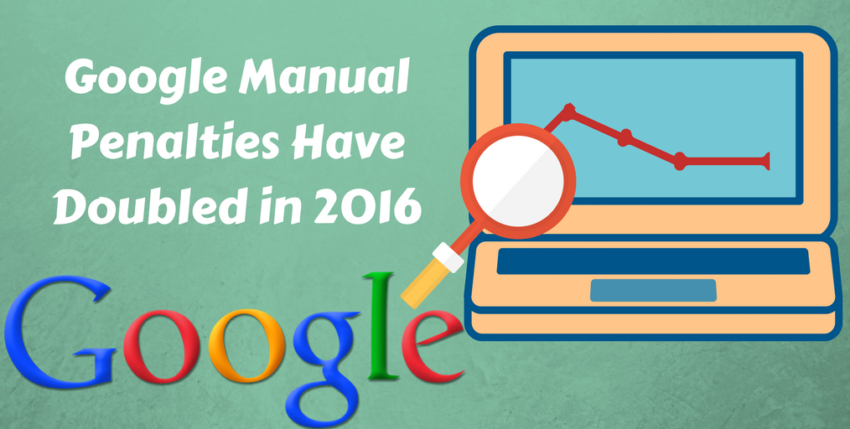
Google’s Manual Action Penalties Doubled in 2016
Google’s mission is to “organize the world’s information and make it universally accessible and useful.” As part of that mission, they have an extensive set of tools to fight web-spam. Google released a report earlier this month detailing their web-spam-fighting efforts and manual action penalties taken in 2016. This is important to know even if you’re not a spammer. If Google thinks that some of your marketing tactics or your ad network are against their policies, you could find your website penalized.
Google’s 3 Core Methods of Fighting Against Spam
Google fights spam in its search results through three core methods:
- Search algorithm – the most famous web-spam fighting updates are Panda and Penguin. In 2016, Penguin was updated to work in real-time, rather than in periodic refreshes as in the past. These algorithm changes also protect users from hacked and deceptive sites. Google saw a large increase in hacked websites over this past year, especially in mobile.
- Manual action penalties – If the algorithm or someone at Google notices there is something fishy, they can do a manual investigation. If they believe the site is problematic they will penalize it.
- User-submitted reports – Google also receives user-submitted reports of spam sites. Google then launches a manual investigation to see if the claim is true. Just a little over half are considered to be spam, but they do receive a lot of reports from jealous competitors trying to get sites above them delisted. No, spam does not mean “site placed above mine” as a clever commenter once said.
The Manual Action Penalties Went from 4.3 to 9 mill During 2016 Only
The number of manual action penalties done by Google doubled over last year. Over 9 million messages were sent to webmasters telling them about problems with their websites. Last year, it was 4.3 million messages. On the other hand the number of manual reports dropped significantly during that period. 180,000 reports were filed by users in 2016 compared to 400,000 of the last year. We can surmise this is due to the algorithm improvements and more aggressive manual actions taken by Google over the 2016.
Google works very hard to keep their search engine results clean for everyone by fighting webspam and educating webmasters on how to fight it on their sites. For more information, check out the first link in this article. And if you do find you have been penalized by Google, contact GBOG for a site analysis.
